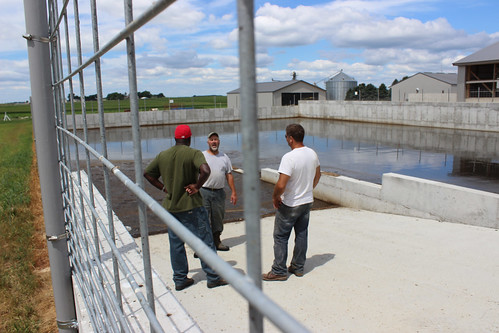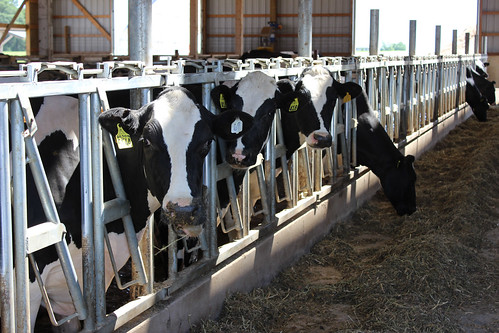
A dairy cow can produce up to 140 pounds of manure in a day. So for James “Jim” Johnson, who owns 150 dairy cows on his Boone County, Ill. ranch, that means 7.7 million pounds of manure per year. Where does this manure go?
On many ranches, manure is stored and filtrated in a waste lagoon. But after a heavy rain in 2011 caused Johnson’s waste lagoon to overflow onto a nearby road, Johnson sought help to prevent it from happening again. In an effort to protect the quality of water and soil, he worked with the Illinois Environmental Protection Agency and USDA’s Natural Resources Conservation Service (NRCS) to find a solution.
NRCS assessed his operation and developed a comprehensive nutrient management plan. The assessment and plan helped Johnson to change his barns to properly handle the storage and flow of manure.
“I found out that I needed five months of storage for a (manure) pit for my barn,” Johnson said.
By paying a portion of the project costs, NRCS partnered with him through the Environmental Quality Incentives Program (EQIP) to install a concrete manure facility and the accessories to make it work, such as access roads and gutters.
His gravity flow system from the barn pulls liquid manure into the concrete pit. With gravel access roads, the system provides a travel way for equipment, vehicles and livestock. Also, the roads helped to protect the soil and other natural resources in handling heavy farm vehicles. Johnson’s gutters improved rainwater to flow away from the cows for better control.

In fiscal 2012 and 2013, NRCS provided more than $1.9 billion in EQIP financial assistance to farmers and ranchers to implement practices as part of comprehensive nutrient management plans.
“With producers’ abilities to take advantage of programs such as EQIP, it enables them to install conservation practices that provide environmental benefits,” NRCS District Conservationist Lewis Nichols said.
Now, Johnson’s dairy operation runs more efficiently and his cows’ health and land show improvement. In addition, he enjoys that organic manure saves money because he no longer has to spray commercial fertilizer on his fields, and he even shares it with his neighbor. Organic fertilizer is better than buying commercial, he said.
“Being a producer can be rewarding sometimes,” Johnson said, “Now my improvements have made other farmers notice a difference in handling animal waste.”

